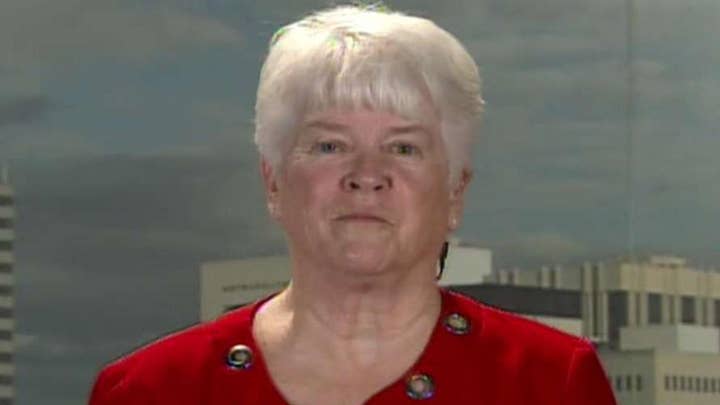Fox News Flash top headlines for June 7
Fox News Flash top headlines for June 7 are here. Check out what's clicking on Foxnews.com
This week, the Washington state Supreme Court disregarded the U.S. Supreme Court when it reaffirmed its earlier decision to allow the state to punish Barronelle Stutzman, the owner of Arlene's Flowers, for living out her religious beliefs in her business.
The Washington court reaffirmed its own 2017 ruling despite the U.S. Supreme Court sending the case back to Washington in light of last year’s Masterpiece Cakeshop decision, in which the Justices condemned the state acting out of hostility toward the beliefs of religious Americans.
While it's very likely attorneys for Barronelle will appeal the state court’s decision to the Supreme Court again, the high court is currently deciding whether to review another case that could also be the vehicle for settling this debate once and for all. Sooner or later, government compelling the speech of citizens against their conscience must be stopped.
WASHINGTON SUPREME COURT RULES AGAINST FLORIST WHO REFUSED SERVICE FOR GAY COUPLE'S WEDDING
The case of “Sweetcakes by Melissa” presents the Court with an opportunity to provide clarity to businesses, large and small, on the fundamental question of whether they may operate in accordance with deeply held convictions – or be forced by the state to abandon their First Amendment rights when they enter the marketplace. This is a question left unanswered by Masterpiece.
Like Baronelle Stutzman, and like Jack Phillips from the Masterpiece case, the Kleins operated a small family business, Sweet Cakes by Melissa, that served every customer. They offered only custom designed baked goods. But, like Stutzman and Phillips, the Kleins could not express a message that violated their deeply held religious beliefs. Consequently, adhering to their religious views on marriage, they politely declined to design a cake for a same-sex wedding even though they had always been happy to do business with the family on other occasions.
For Aaron and Melissa, a wedding is a sacred occasion, based on their faith, and they would often spend hours getting to know the clients for whom they designed wedding cakes. Melissa’s practice was to pray for God’s blessing on the marriage of the clients as she decorated their cakes.
But when considering a complaint filed against the Kleins, government officials from the Oregon Bureau of Labor and Industries (BOLI) made statements disparaging the views of Aaron and Melissa much like the commissioners in Colorado made against Phillips. Shockingly, the state of Oregon went much further than Colorado. Oregon’s BOLI assessed a $135,000 penalty against the Kleins, essentially bankrupting their business and ordered Aaron and Melissa not to publicly speak their beliefs on marriage.
Unfortunately, as we saw this week in Washington and as the Klein’s experienced in Oregon, states agents have yet to get the message sent by the Masterpiece case. And, because Masterpiece didn’t completely answer the question, American business owners are still wondering whether the government can prescribe what they believe and force them to confess accordingly.
Beyond clarifying whether the government can compel citizens to create a message contrary to their religious beliefs, the Klein’s case also presents the Court with the chance to reverse its 1990 decision in Employment Division v. Smith. There, the Court neutered the Free Exercise clause by allowing a law to interfere with the exercise of religion as long as the law is generally applicable and neutral on the face of the law, despite its consequences on freedom.
CLICK HERE TO GET THE FOX NEWS APP
The consequences for religious liberty as a result of Smith have been devastating, often leading to the very government hostility Masterpiece has said is unconstitutional.
The Supreme Court shouldn’t let this confusion continue. State agents too often believe themselves to be empowered to force religious Americans to speak or act in ways that violate their civil rights. The Court has an opportunity via “Sweetcakes by Melissa” to provide Americans with much-needed clarity on whether they are free to operate their businesses according to their faith or if faith can be confined to the hearts and minds of the faithful.










































